
The mobile EPMA experience is simple and allows even the most complex medicines to be prescribed on a handheld device, with full validation against allergies, drug-drug interactions, and patient-specific clinical parameters such as blood pressure.
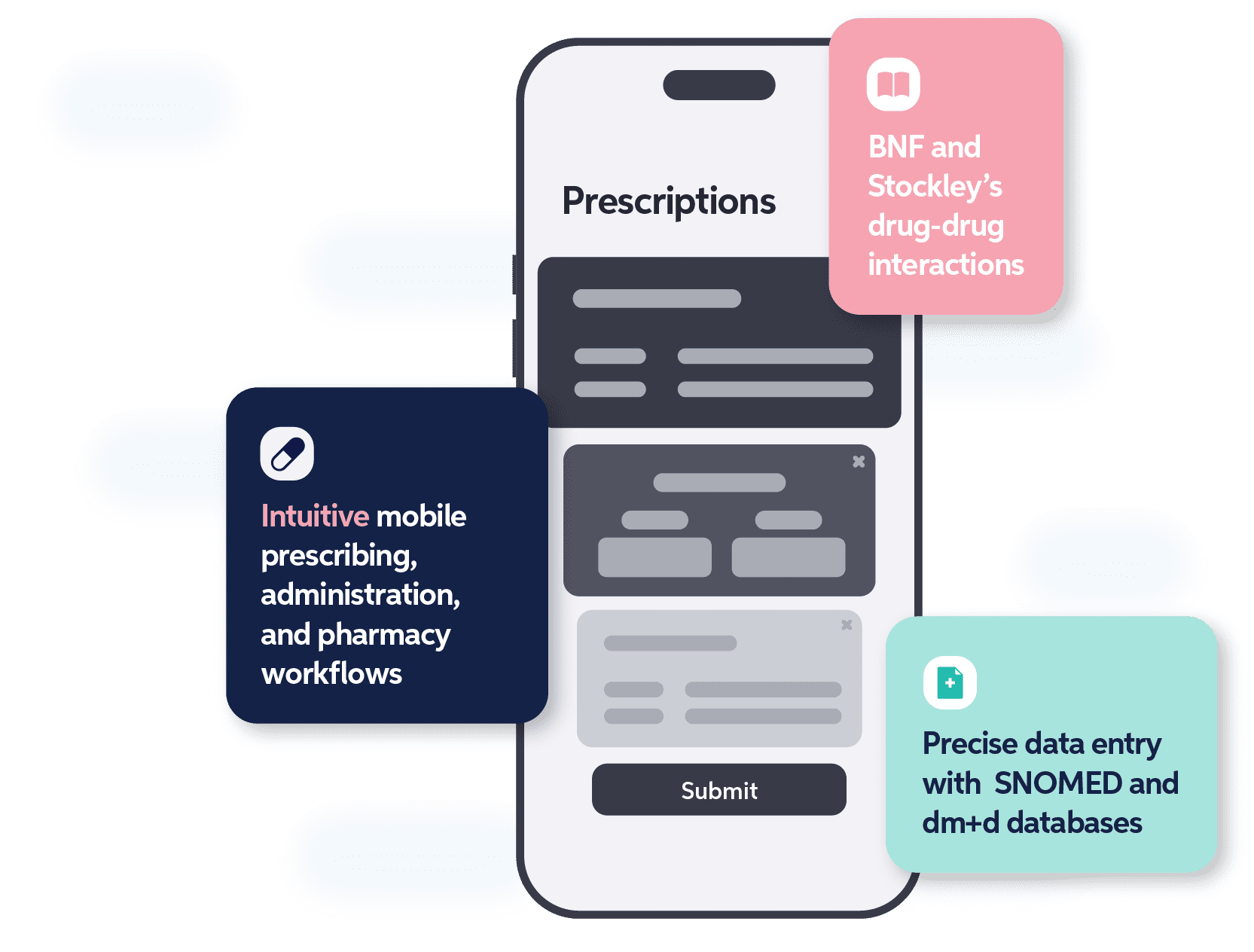
Configure complex protocols with enhanced clinical decision support, including prescriptions for infusions, daily variable dosing, and patients with many comorbidities. Define bespoke questions within protocols and present them to prescribers to ensure safer prescribing and decision support.
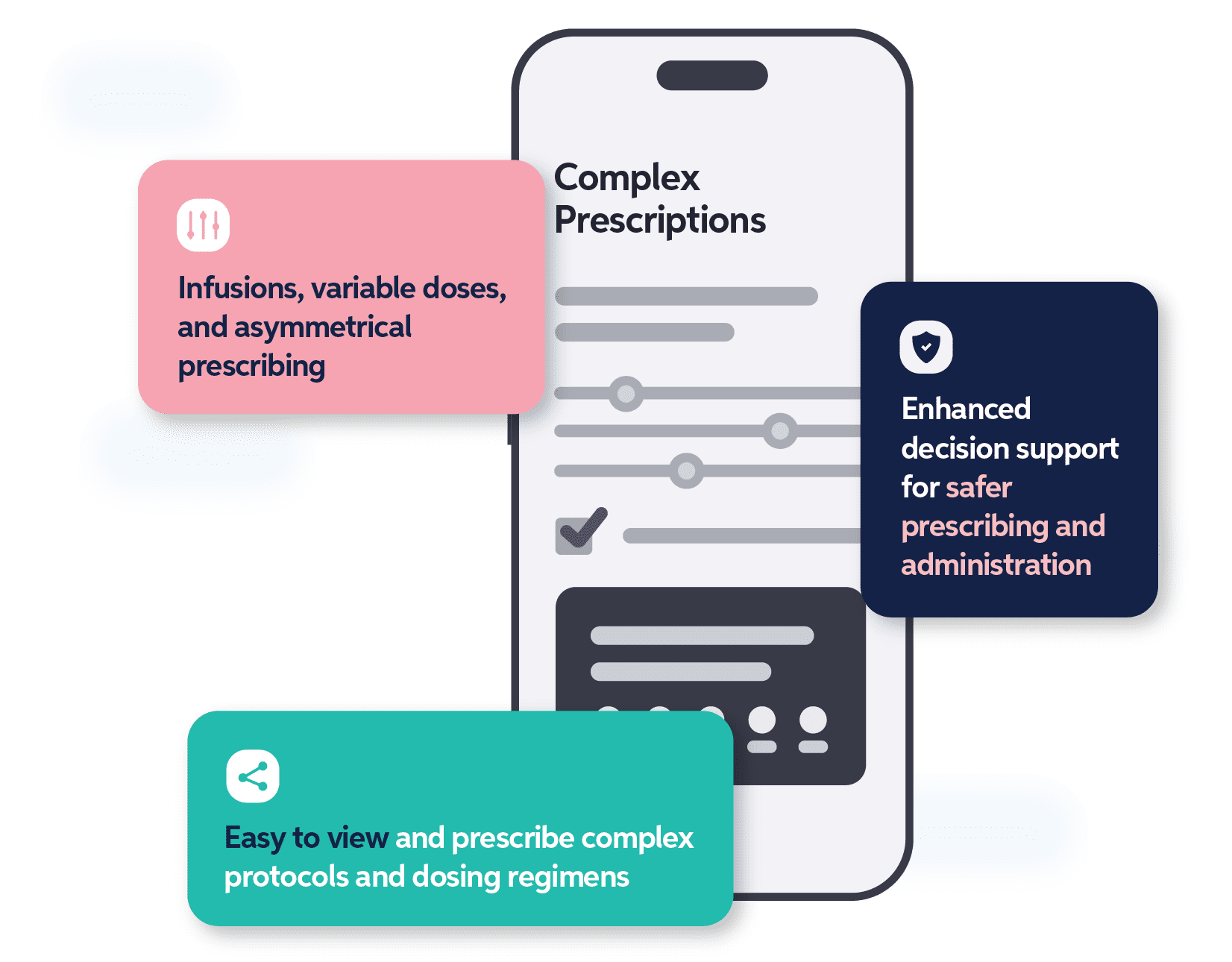
Closed-loop can be challenging when medicine administration requires a PC. With Nervecentre EPMA, GS1 barcodes can be scanned using the built-in camera on a handheld device to enhance the ability to meet closed-loop compliance.
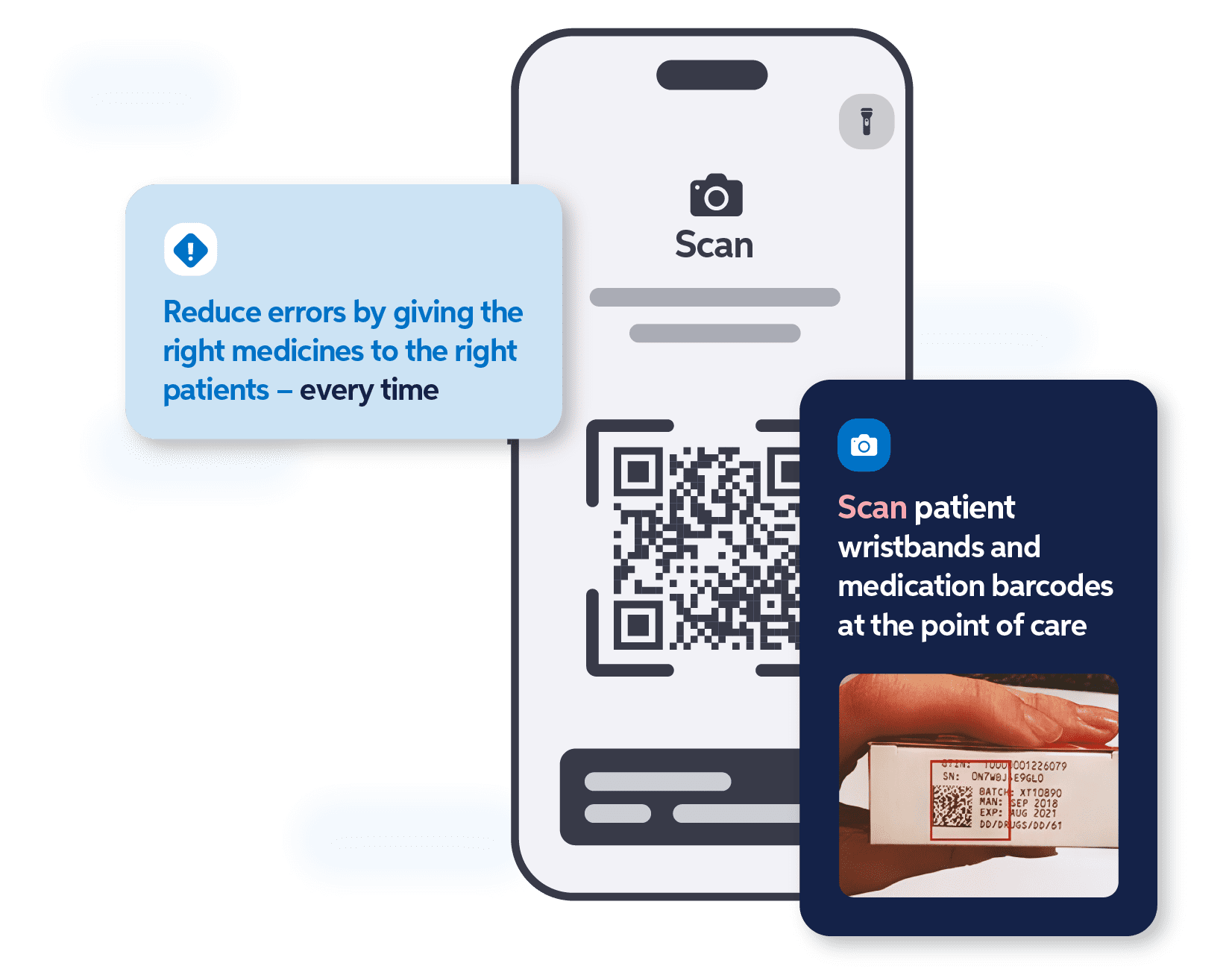
View all prescriptions on mobile devices and make adjustments at the patient’s bedside. Medicines can be linked to physiological or pathology results such as BM, INR or BP. These results are trended with dose and timing information and can be validated to ensure parameters have up-to-date values and are within an acceptable range.
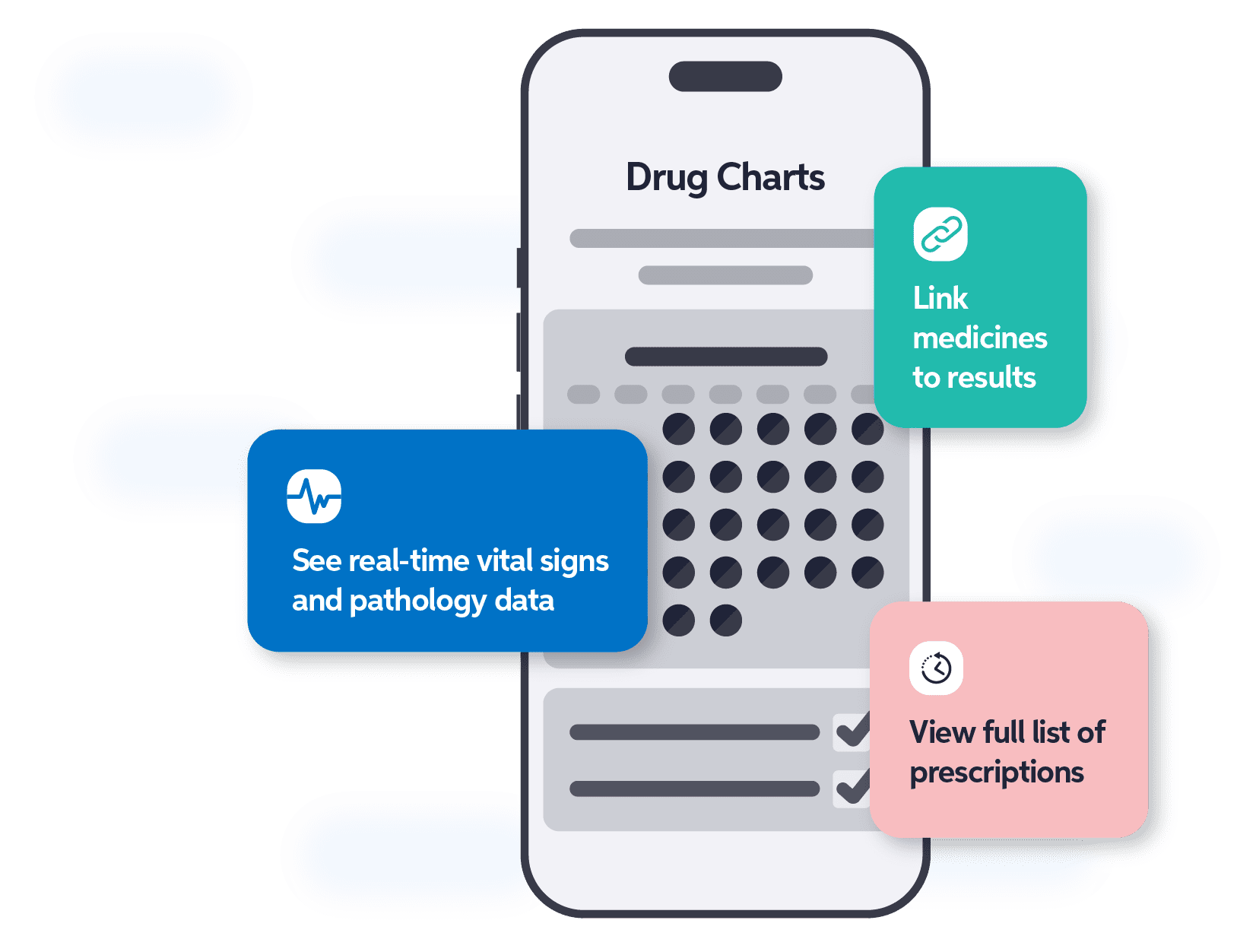
Alerts can be configured to be automatically generated based upon certain triggers for specific medicines. This can include alerts to pharmacy for toxic or high cost medicines, alerts to infection control when medicines are prescribed to treat contagious diseases, or alerts to the nurse if administration becomes overdue for medicines that have tight timing requirements.
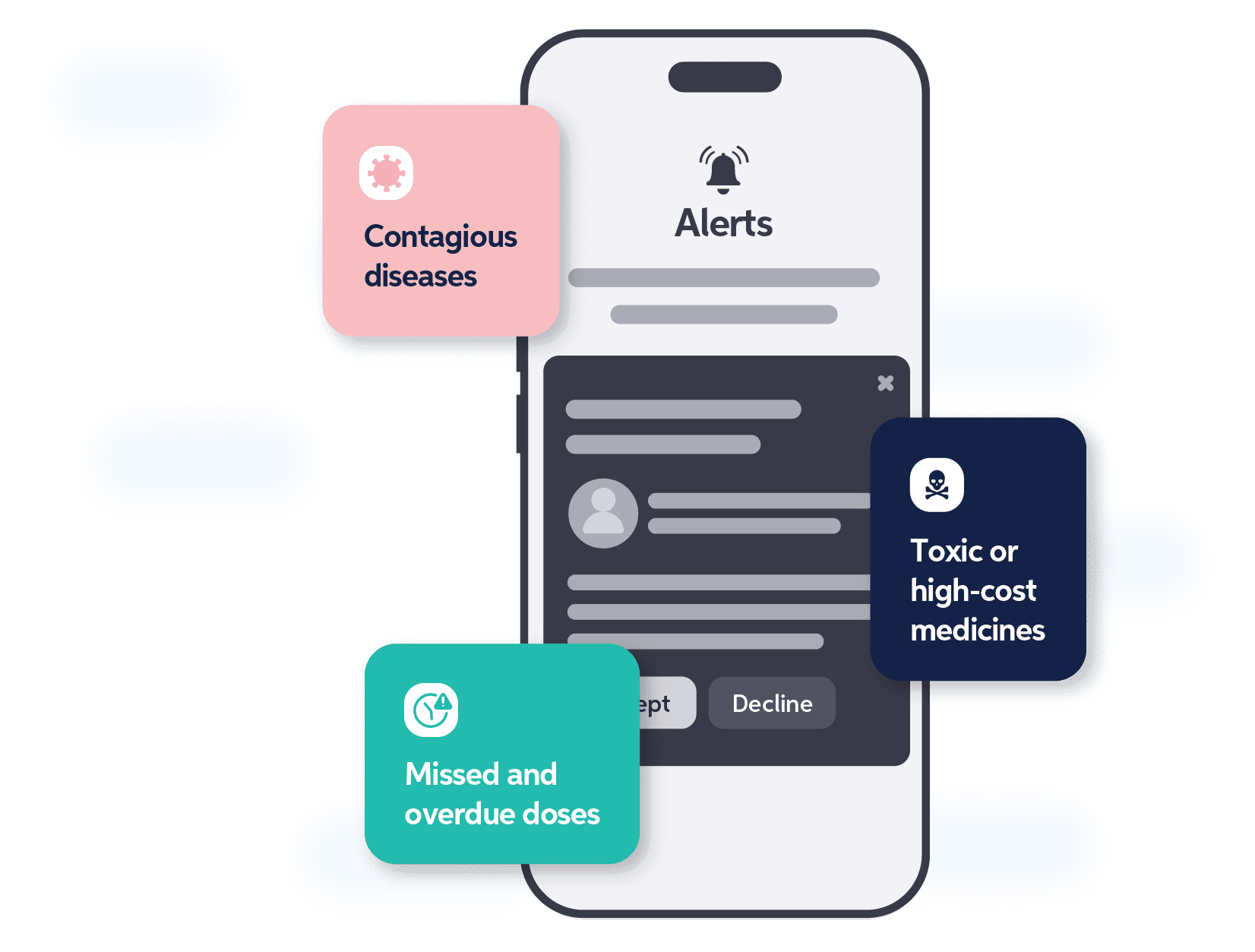
View discharge medicine workflows on desktop or mobile devices, create discharge prescriptions whilst comparing arrival medicines with those prescribed at the hospital, and track discharge progress on real-time dashboards.
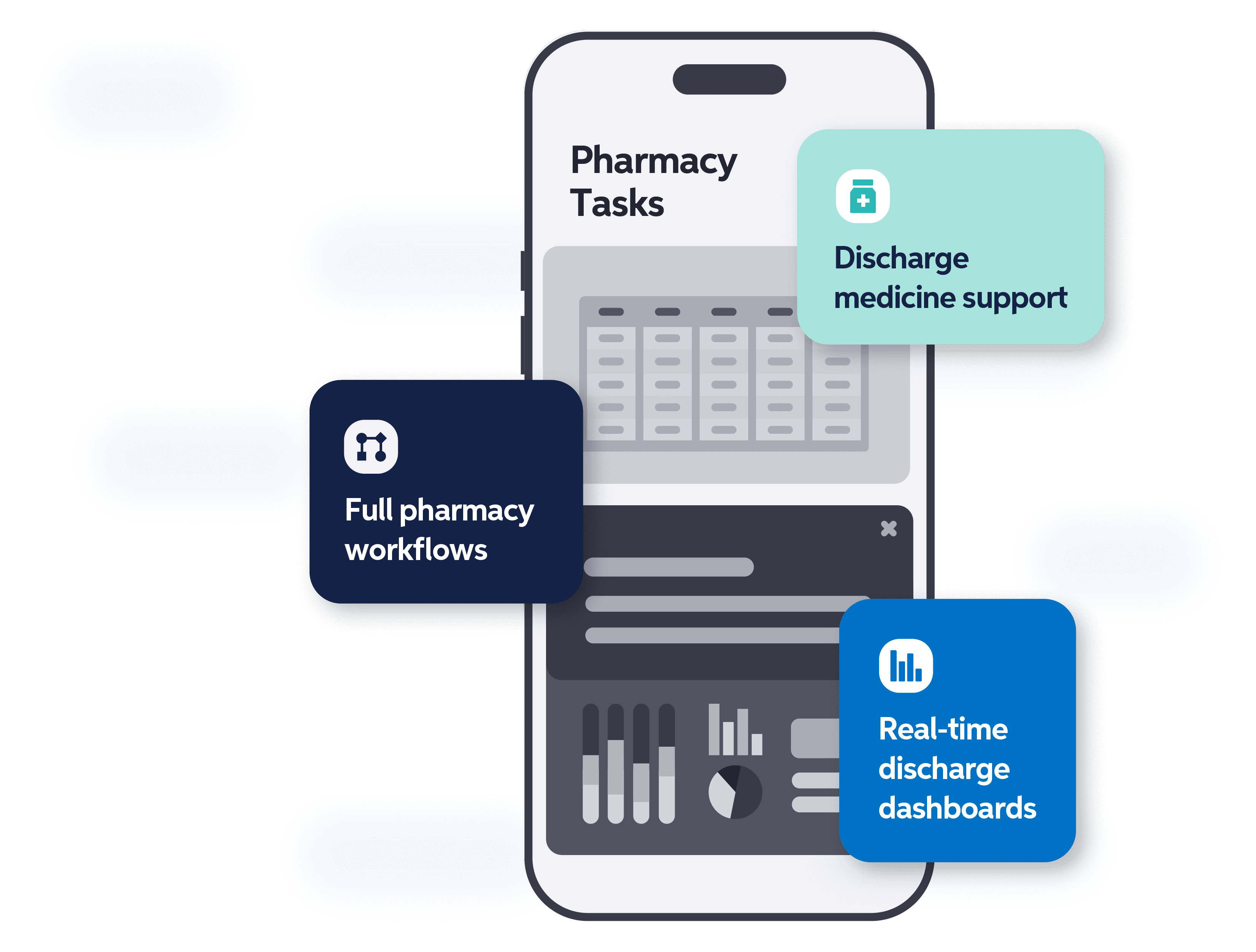
The mobile EPMA experience is simple and allows even the most complex medicines to be prescribed on a handheld device, with full validation against allergies, drug-drug interactions, and patient-specific clinical parameters such as blood pressure.
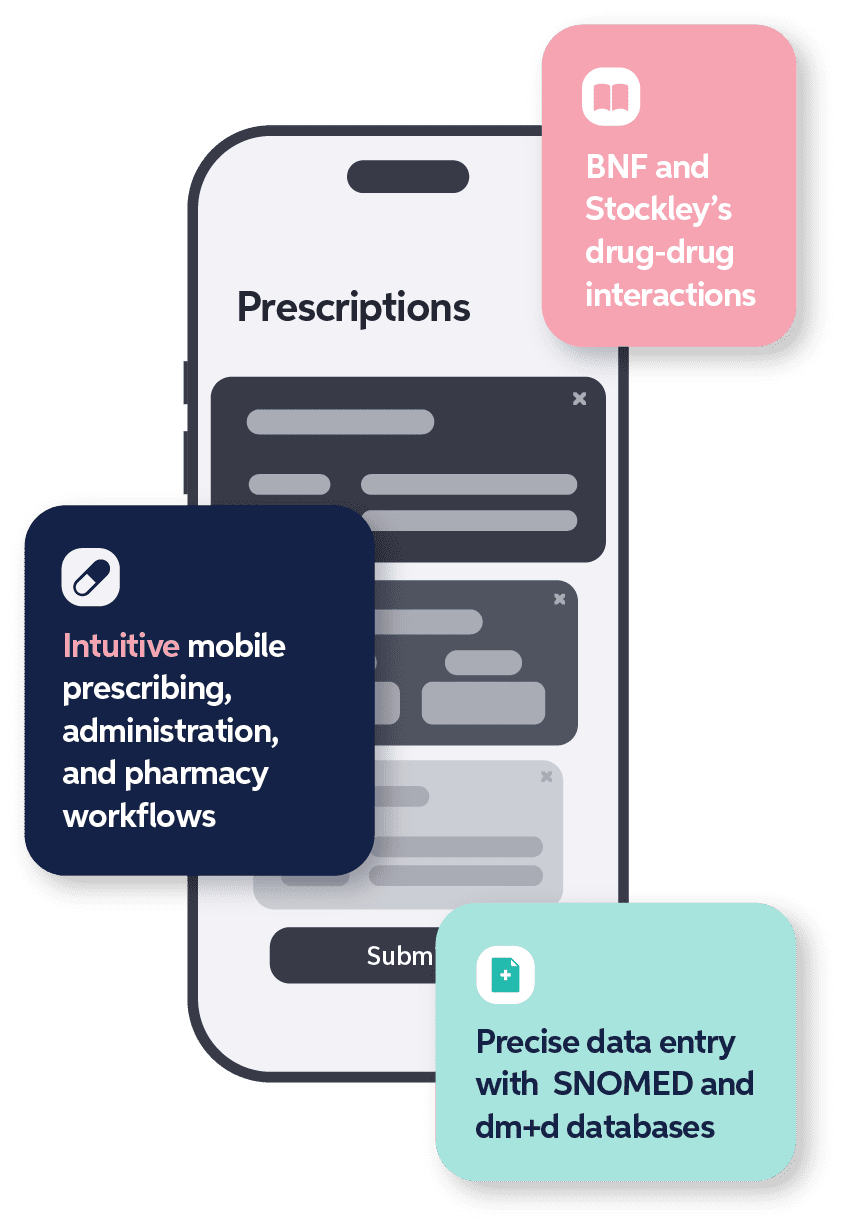
Configure complex protocols with enhanced clinical decision support, including prescriptions for infusions, daily variable dosing, and patients with many comorbidities.
Define bespoke questions within protocols and present them to prescribers to ensure safer prescribing and decision support.
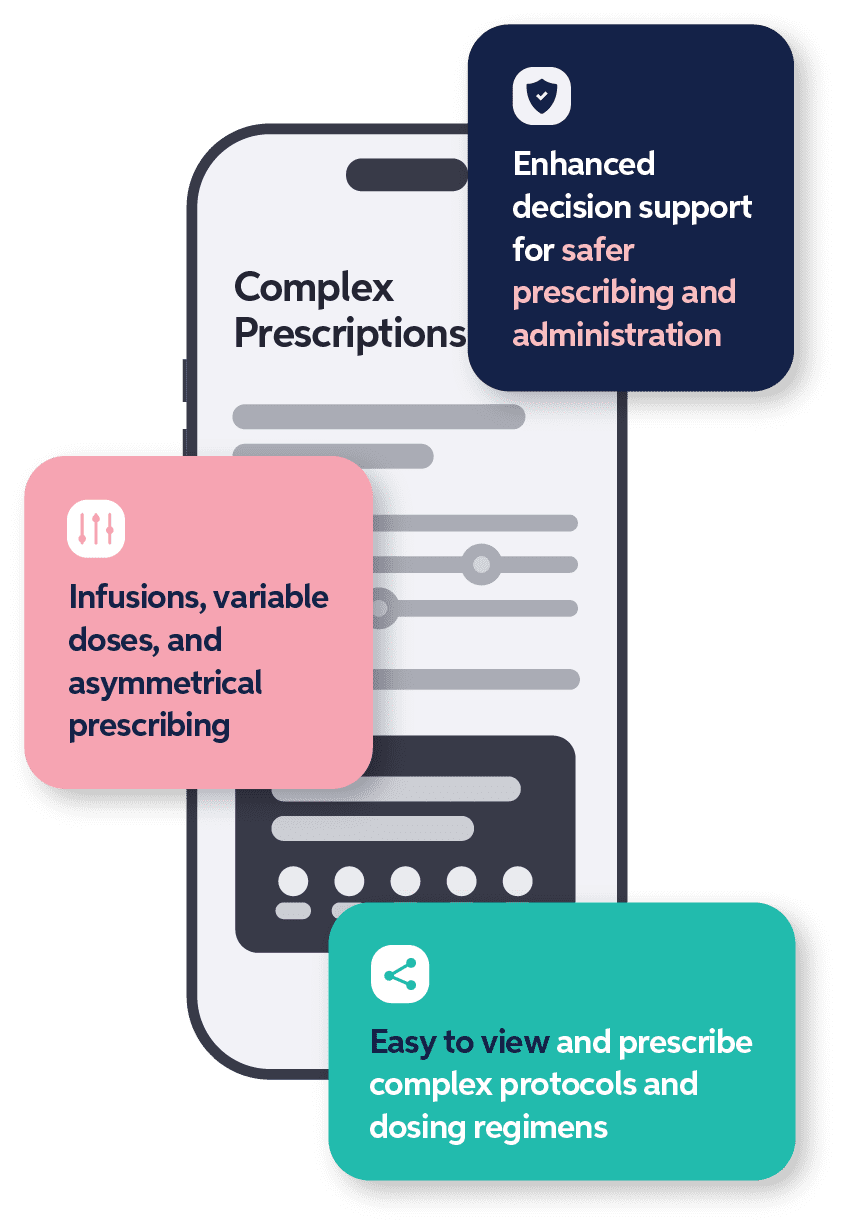
Closed-loop can be challenging when medicine administration requires a PC. With Nervecentre EPMA, GS1 barcodes can be scanned using the built-in camera on a handheld device to enhance the ability to meet closed-loop compliance.
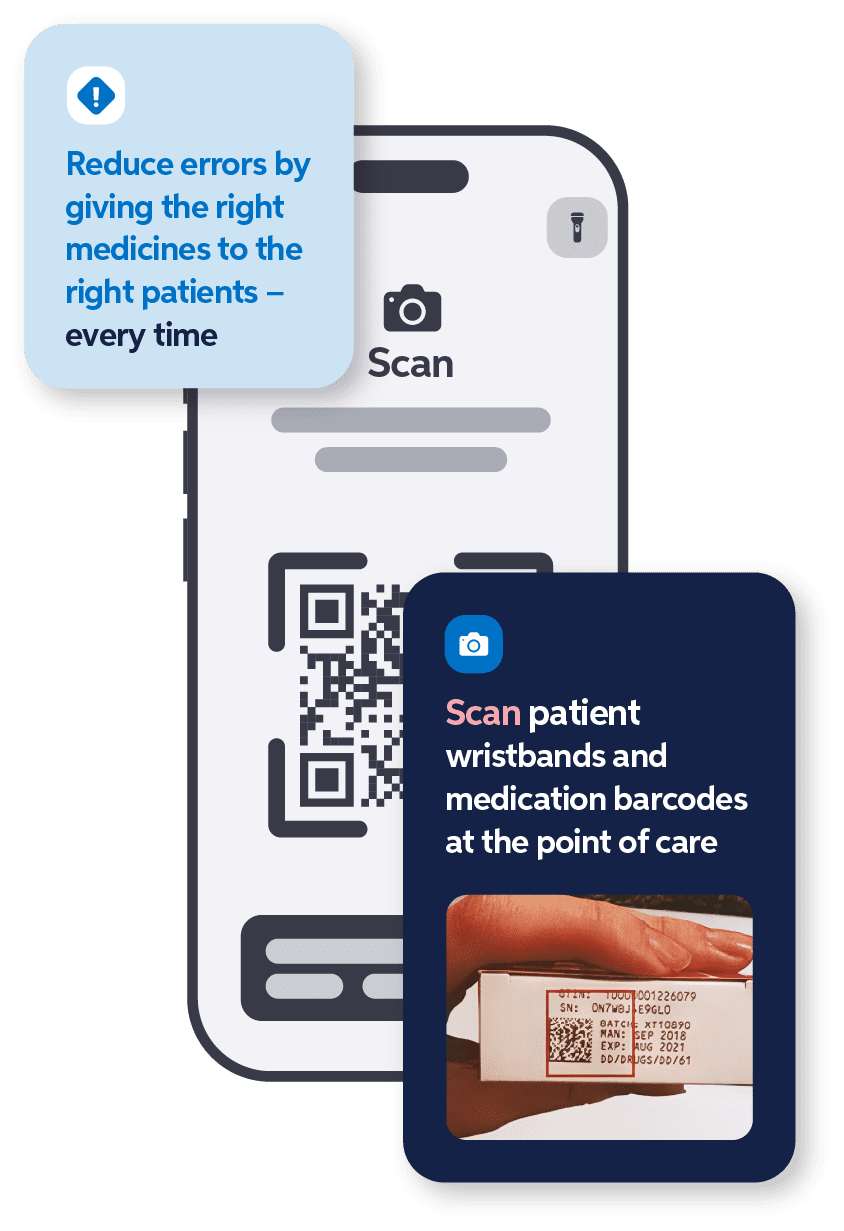
View all prescriptions on mobile devices and make adjustments at the patient’s bedside. Medicines can be linked to physiological or pathology results such as BM, INR or BP.
These results are trended with dose and timing information and can be validated to ensure parameters have up-to-date values and are within an acceptable range.
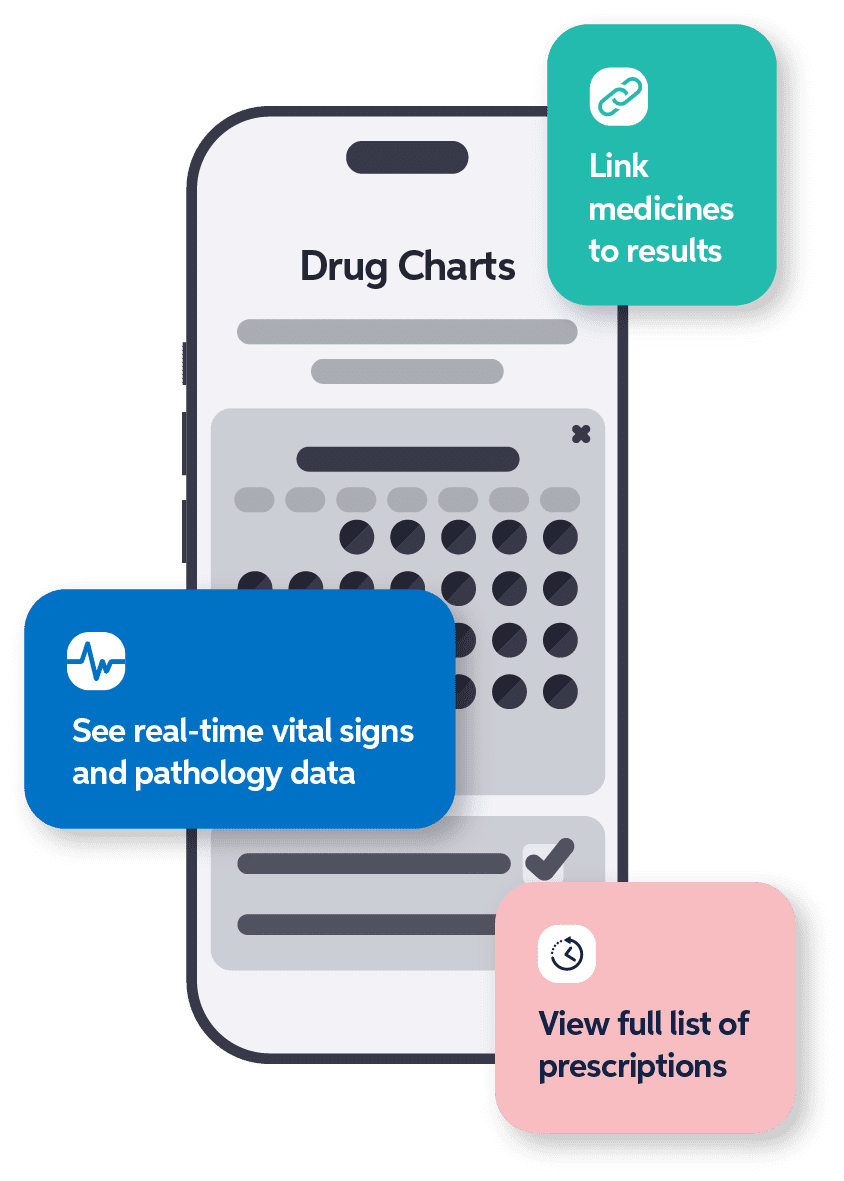
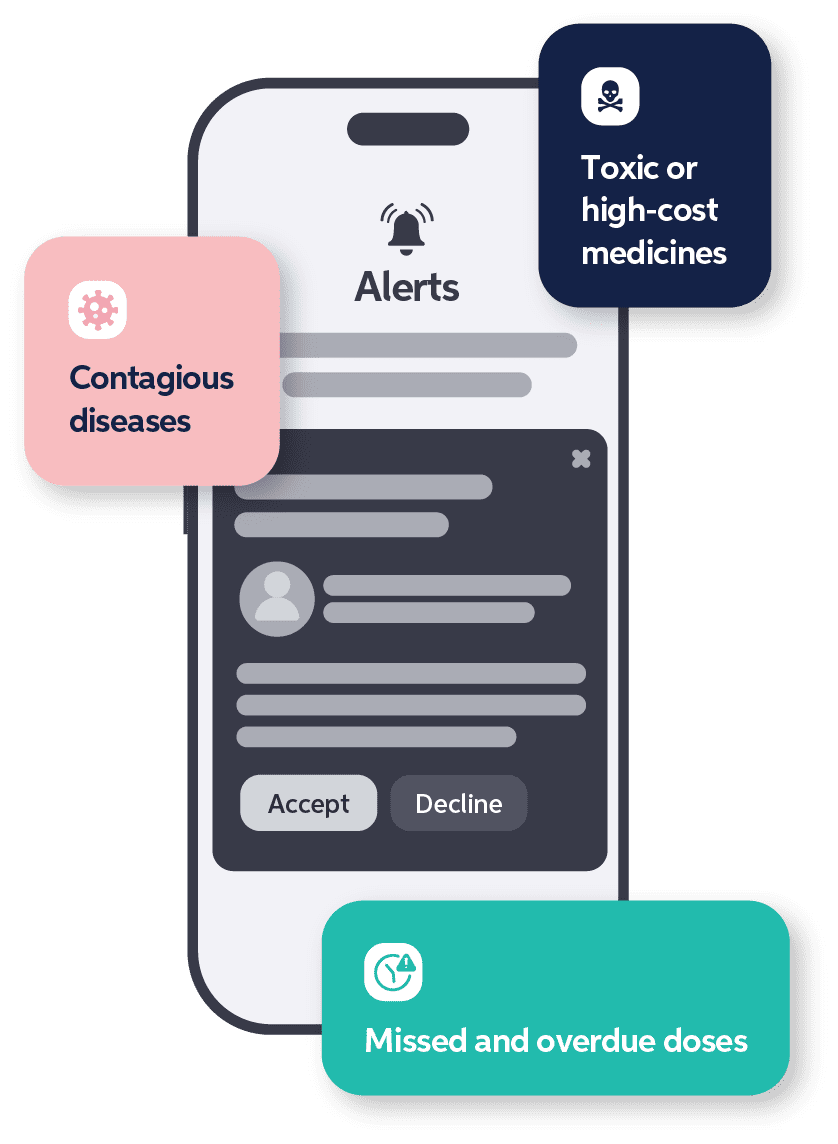
Alerts can be configured to be automatically generated based upon certain triggers for specific medicines.
This can include alerts to pharmacy for toxic or high cost medicines, alerts to infection control when medicines are prescribed to treat contagious diseases, or alerts to the nurse if medicine administration becomes overdue for medicines that have tight timing requirements.
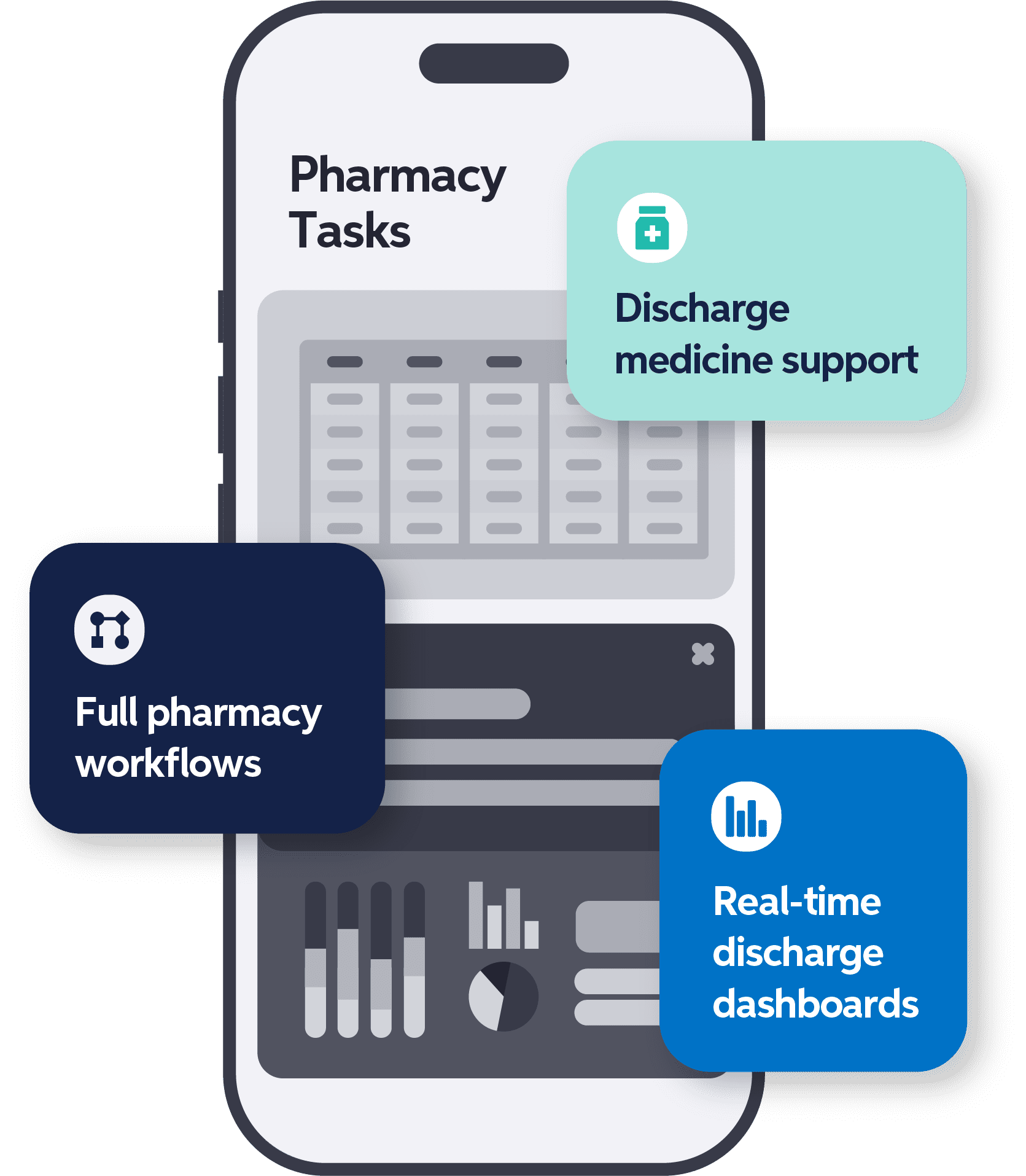
View discharge medicine workflows on desktop or mobile devices.
Create discharge prescriptions whilst comparing arrival medicines with those prescribed at the hospital. Track discharge progress on real-time dashboards.

Medicines Management Technician